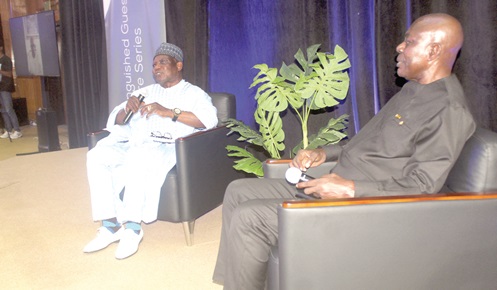
Military rule not alternative to multiparty democracy — ECOWAS
“I am of the view that military and dictatorial rule is not a viable alternative to electoral multiparty democracy,” the ECOWAS Commissioner for Political Affairs, Peace and Security, Dr Abdel-Fatau Musah, has said.
Advertisement
"Empirical evidence in Africa between 1970 and 1990, as well as the struggles of current military regimes makes that debate mute.
“Military and dictatorial rule guarantees neither development nor human rights, at least our history teaches us that.
It is important that we all work with determination to prevent the region from becoming a new arena for proxy wars,” he added.
Dr Musah said the continent must adhere to constitutional order to enjoy the full benefits of democracy and, therefore, called on Mali, Burkina Faso, Guinea and Niger to restore constitutional order through dialogue with the regional bloc.
Speaking at a public lecture, he said although liberal democracy may have failed to deliver enough dividends because it was only 30 years old, it protects citizens’ rights and offers them free choices.
The lecture was organised by the Council on Foreign Relations-Ghana, a think tank on foreign policy and international affairs in Accra last Friday.
It was on the theme: "ECOWAS at the crossroads: Emerging threats and challenges — The way forward."
It formed part of efforts to address issues confronting the regional body ahead of its 50th anniversary celebration next year.
Resuscitation of democracy
Dr Musah further said that the fledgling liberal democracy in Africa requires urgent resuscitation through the infusion of local culture, traditions and realities, strengthening of internal democracy and promotion of proportional representation to enhance inclusive governance, provision of infrastructure and basic services, among others.
He said to help confront difficulties in the sub-region, there was the need to address emerging challenges in democracy, governance and development.
In line with that, Dr Musah said ECOWAS, as part of its initiatives, was enhancing the operationalisation of a conflict prevention framework.
He said ECOWAS was activating its standby force to help coordinate disciplinary counter terrorism efforts in the sub-region, adding that the sub-regional body was also establishing an economic, social and cultural council to bring together civil society for decision-making purposes.
Unity
For his part, a Malian politician, Cheick Boucadry Traore, who contested the presidential election in that country in July 2013, on the ticket of the African Convergence for Renewal (Convergence Africaine pour le Renouveau (CARE), underscored the need for ECOWAS to help member states address unique challenges confronting them.
“We must never lose sight of the importance of unity, else we would suffer the consequences of our failures if we do not unite to confront our challenges,” he said.
To advance democracy and security on the continent, Mr Traore said leaders must improve the lives of people in the sub-region by working with renewed determination to end hunger and conflicts.




